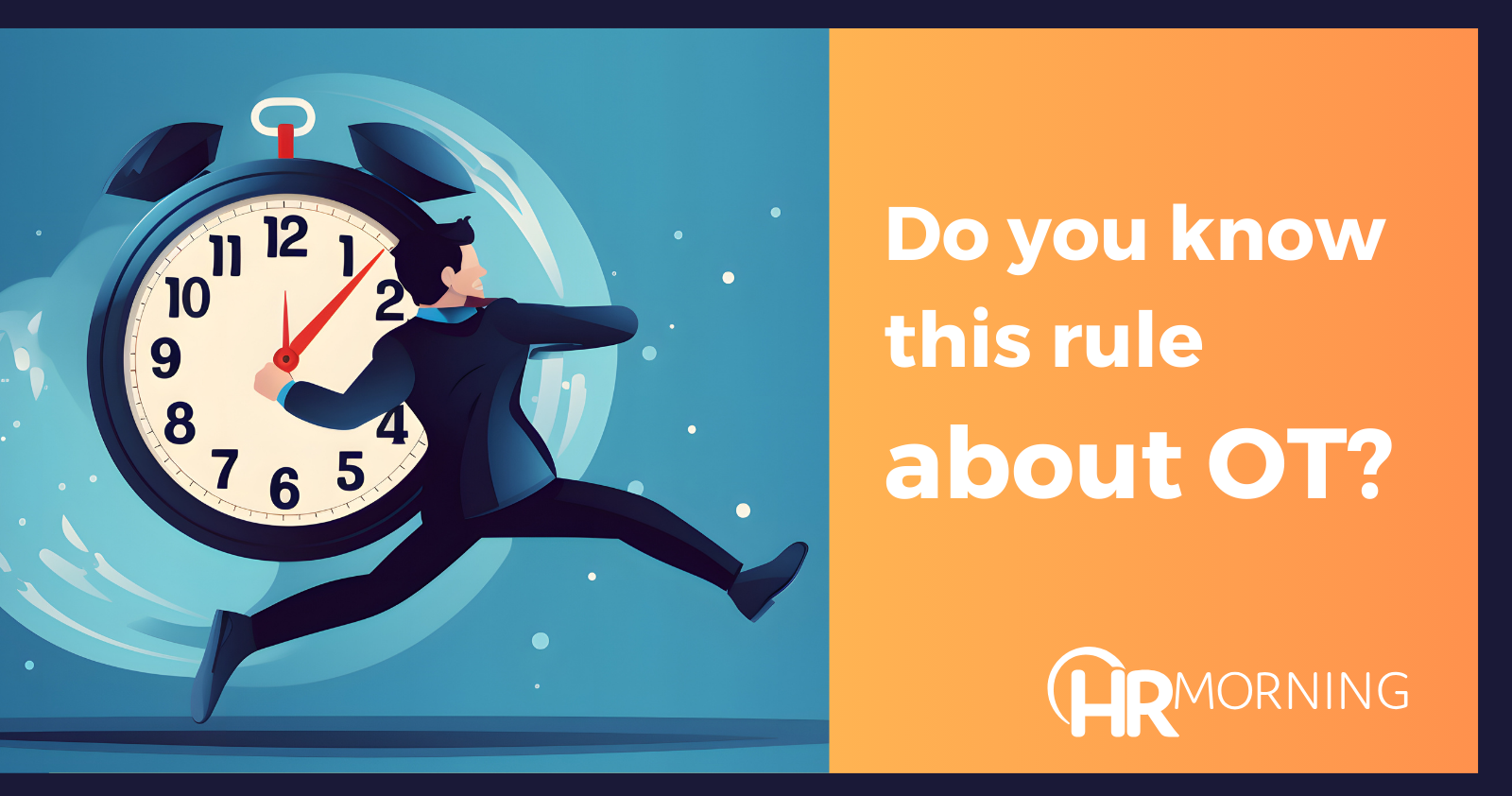You might think you know all the ins and outs of when time worked by employees — including OT — must be paid. After all, it sounds like a pretty simple question, right?
But as savvy HR pros know, even the seemingly simple questions can sometimes get tricky – as a recent decision from a federal appeals court shows.
The case involved an employer that chose to pay its employees who worked overtime performing “incidental activities” – as long as they recorded the time. The employee said he should be paid for time he did not record. A lower court and jury agreed with him, but a federal appeals court reversed and issued a ruling for the employer.
Let’s dive into the details.
Mixed signals on OT pay
Michael Meadows worked as a “customer engineer” (CE) for NCR Corporation, which makes, sells and supports point-of-sale systems and ATMs. In that role, he serviced NCR devices in the field.
NCR told its CEs to work only during their scheduled shifts, and it banned off-the-clock work. But when CEs acted contrary to NCR guidance by working overtime, it paid them for that time — as long as they recorded it.
Meadows sometimes worked unauthorized overtime, doing things like reviewing work emails, planning a work route, answering work calls, and making sure his van was properly stocked. If he recorded the time spent doing so, he got paid for it; otherwise, he did not.
When he sued for the money, a lower court found that the activities at issue were incidental rather than principal to his job. Under the Fair Labor Standards Act, this meant the time was payable only if NCR elected to pay for it by way of a contract, custom or practice.
Jury: Show him the money
The case went to a jury after the lower court said Meadows could win by showing NCR had a custom or practice of paying for those types of incidental activities – and knew Meadows was performing them. A jury then found in favor of Meadows, and NCR filed a post-trial appeal with the trial judge.
NCR said it did not have a custom or practice of paying for unrecorded incidental time, but the trial court said it could not avoid payment by imposing the recording requirement.
This became the key question when NCR sought further review from the Seventh Circuit Court of Appeals.
Upon further review …
On review, the Seventh Circuit sided with NCR.
To impose a payment obligation for the time at issue, it was not enough that NCR knew Meadows was performing the extra work, the appeals court said.
Instead, it ruled that NCR was free to impose its recording requirement as a condition for payment of the time.
“The district court’s consideration of NCR’s custom or practice was too narrow,” the appeals panel explained. The lower court was wrong to ignore the limits NCR placed on payment for that time, it said.
In other words, NCR was within its rights to say, “If you don’t record the time you spend doing incidental stuff, you won’t get paid for it.”
The appeals court vacated the lower court’s denial of NCR’s motion for a new trial, and it sent the case back to the lower court for further development.
Here are your takeaways
Here are the key points to take away from the ruling:
- Activities that are integral to an employee’s job must be paid, and they always count toward overtime.
- Activities that are merely incidental to an employee’s job generally are not compensable.
- Employers may elect to pay for incidental activities by contract, custom or practice.
- Employers can condition payment for those incidental activities on the satisfaction of a set requirement – such as a requirement that employees record the incidental time.
Be very careful about voluntarily establishing a custom or practice of paying for time that you are not otherwise obligated to compensate under the FLSA. In the Seventh Circuit (Illinois, Indiana, Wisconsin), you can set a requirement that the time must be recorded in order to be paid.
The case is Meadows v. NCR Corp., No. 16-cv-6221 (7th Cir. 10/5/23).


